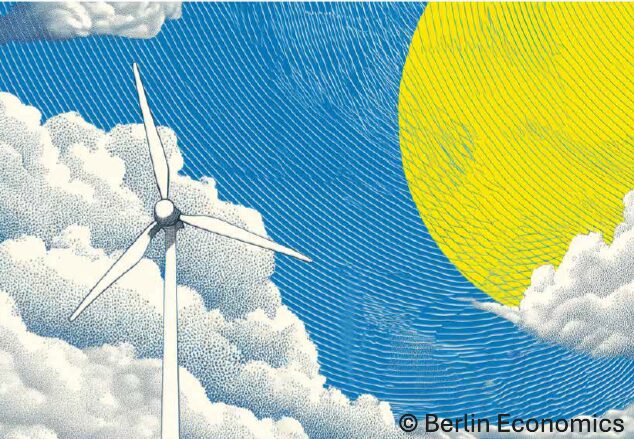Green Tech Made in Ukraine: Assessing the potential of green value chain manufacturing localisation in Ukraine
We are pleased to announce the publication of our study on assessing the potential of green value chain manufacturing localisation in Ukraine, prepared in collaboration with Ukrainian Industry Expertise.

Authored by Pavel Bilek, Yiğit Tahmisoğlu, Volodymyr Vlasiuk, Serghii Povazhniuk, Iryna Romanenko and Henriette Weser, the study provides the first comprehensive quantitative and qualitative assessment of the feasibility and competitiveness of localising the manufacturing of solar PV, wind turbine, and lithium-ion battery value chains in Ukraine, and identifies the industrial and stimulus policies needed to develop competitive manufacturing.
The study is motivated by Ukraine’s green transition and the opportunity to make local manufacturing of green technologies a key driver of the country’s recovery and growth. Expanding domestic production can support current and post-war economic recovery and growth, help achieve domestic energy targets, and strengthen Ukraine’s integration into European green technology value chains.
The results show that Ukraine demonstrates varying levels of competitiveness across the solar PV, wind turbine, and lithium-ion battery value chains, with significant upside potential given its domestic deployment targets and export ambitions.
Wind turbines offer one of Ukraine’s strongest opportunities for competitive manufacturing localisation, demonstrating cost-competitiveness vis-à-vis the EU, particularly in the production of towers and blades. While nacelle production remains complex and less developed, a mixed model that blends imported subcomponents with local integration offers a practical path forward.
In solar PV manufacturing, Ukraine is unlikely to compete with Chinese and Southeast Asian modules on a pure cost basis – a challenge shared by the EU and U.S. Nevertheless, scaling up module assembly presents an opportunity to meet growing domestic demand, with additional potential for exports and deeper integration into the EU market. However, without a strategic revival of the EU’s own solar manufacturing sector, localising the full value chain in Ukraine remains highly unlikely.
In the Lithium-ion battery segment, Ukraine currently lacks experience in cell manufacturing. However, the existing activity in assembling imported battery cells could be scaled up to meet domestic demand, particularly for the battery storage sector and other emerging areas such as defence.
A well-coordinated industrial policy will be a critical enabler of catalysing green technology manufacturing in Ukraine. Support from both the government and international donors remains fundamental, not only to foster an enabling environment but also to provide direct supply- and demand-side support.
Furthermore, current financing conditions pose significant challenges for investment in Ukraine. Coordinated support from international financial institutions (IFIs), development finance institutions (DFIs), and the Ukrainian government is essential to mitigate financing risks and unlock vital capital.
In summary, the report highlights that unlocking Ukraine’s green manufacturing potential hinges on uniting the efforts, expertise, and capital of all key stakeholders to support the country’s reconstruction and sustainable growth.
Access the full study here:
This project was funded by the European Climate Foundation.